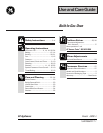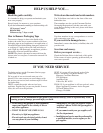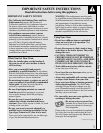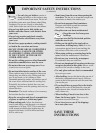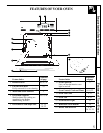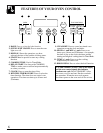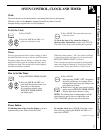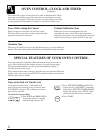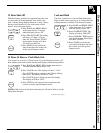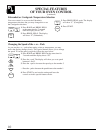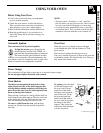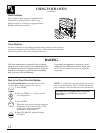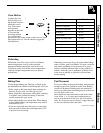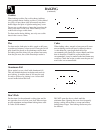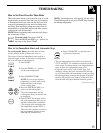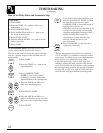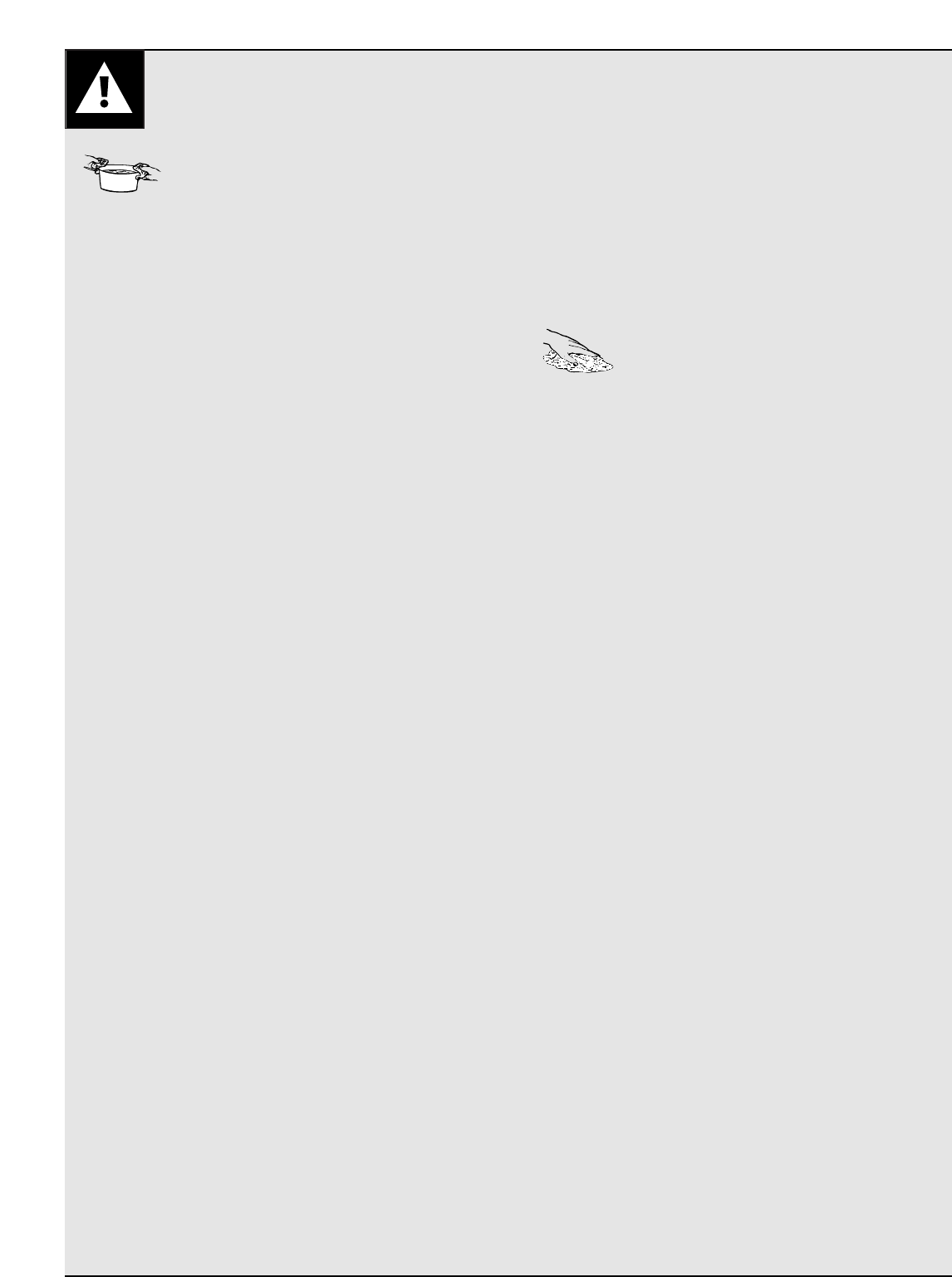
IMPORTANT SAFETY INSTRUCTIONS
(continued)
• Use only dry pot holders—moist or
damp pot holders on hot surfaces may
result in burns from steam. Do not let
pot holders come near open flames when lifting
cookware. Do not use a towel or other bulky
cloth. Such cloths can catch fire on a hot burner.
• Always keep dish towels, dish cloths, pot
holders and other linens a safe distance from
your oven.
• Always keep wooden and plastic utensils
and canned food a safe distance away from
your oven.
• Do not leave paper products, cooking utensils
or food in the oven when not in use.
• DO NOT STORE OR USE COMBUSTIBLE
MATERIALS, GASOLINE OR OTHER
FLAMMABLE VAPORS AND LIQUIDS
IN THE VICINITY OF THIS OR ANY
OTHER APPLIANCE.
• Do not let cooking grease or other flammable
materials accumulate in or near the oven.
• Do not use the oven as a storage area. Items
stored in an oven can ignite.
• Do not touch the interior surface of the oven.
These surfaces may be hot enough to burn even
though they are dark in color. During and after
use, do not touch, or let clothing or other
flammable materials contact, any interior area of
the oven: allow sufficient time for cooling first.
Potentially hot surfaces include the oven vent
openings, surfaces near the openings and crevices
around the door.
Remember: The inside surfaces of an oven may
be hot when the door is opened.
• Keep the oven clean and free of accumulations
of grease or spillovers, which may ignite.
• When cooking pork, follow the directions
exactly and always cook the meat to an internal
temperature of at least 170°F. This assures that,
in the remote possibility that trichina may be
present in the meat, it will be killed and meat
will be safe to eat.
• Stand away from the oven when opening the
oven door. The hot air or steam that escapes can
cause burns to hands, face and/or eyes.
• Do not heat unopened food containers.
Pressure could build up and the container
could burst, causing an injury.
• Keep the oven vent ducts unobstructed.
• Keep the oven free from grease
build-up.
• Place the oven shelf in the desired position
while the oven is cool.
• Pulling out the shelf to the stop-lock is a
convenience in lifting heavy foods. It is also
a precaution against burns from touching the
hot surfaces of the door or the oven walls.
• When using cooking or roasting bags in the
oven, follow the manufacturer’s directions.
• Do not use your oven to dry newspapers.
If overheated, they can catch fire.
• Do not use aluminum foil anywhere in the oven
except as described in this guide. Misuse could
result in a fire hazard or damage to the oven.
• Use only glass cookware that is recommended
for use in gas ovens.
• After broiling, always take the broiler pan out of
the broiler compartment and clean it. Leftover
grease in the broiler pan can catch fire next time
you use the pan.
• If you should have a grease fire in the broiler
pan, turn the oven off and keep the oven and
broiler drawer door closed to contain the fire
until it burns out.
• When broiling, if meat is too close to the
flame, the fat may ignite. Trim excess fat
to prevent excessive flare-ups.
• Never leave jars or cans of fat drippings
in or near your oven.
SAVE THESE
INSTRUCTIONS
4



